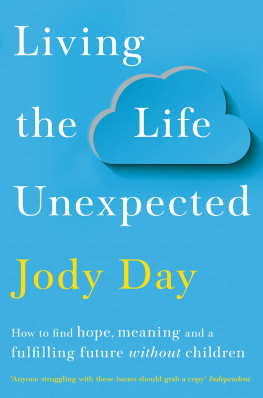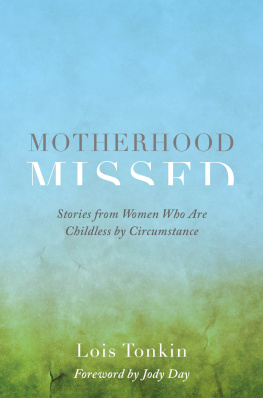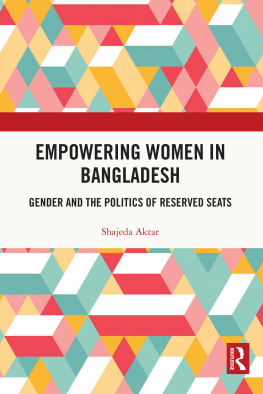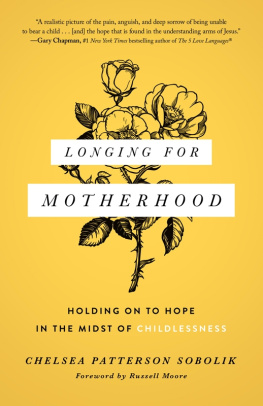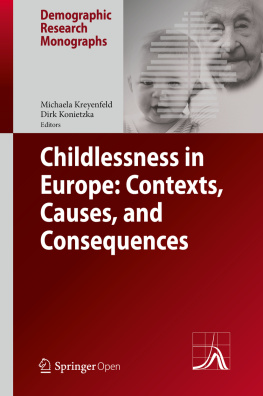
Childlessness in Bangladesh
This book examines the intersectionality and stratified lived experience of rural poor and urban middle-class childless women in Bangladesh.
Childless women in Bangladesh, an overpopulated country where fertility control is the primary focus of health policy, are all but invisible. Papreen Nahar offers an alarming account of stigma, abuse, ostracism, and violence against these women, sharing their experiences of marginalisation in a culture that idealises motherhood. In such a reality, the experience of childlessness, particularly for women, can be much more severe than what is defined as infertility in the biomedical sense. As childlessness is a complex interaction between biology, society, and culture, the book illustrates the ways in which infertility transforms a health problem into social suffering. Although Bangladeshi childless women are systematically excluded by various structural forces, it appears they do not succumb to their circumstances; rather, they develop resilience and agency to become survivors of their new, albeit bleak, lives.
The volume will be of interest to scholars working in medical anthropology, reproductive and womens health, global health, gender studies, development studies, and South-Asian studies.
Papreen Nahar is a Senior Research Fellow in Medical Anthropology and Global Health at Brighton and Sussex Medical School, University of Sussex, UK. She is the author of numerous articles and book chapters on marginalised populations, including on infertility, in low- and middle-income contexts in the Global South.
Routledge Studies in Health and Medical Anthropology
The Anthropology of Epidemics
Edited By Ann H. Kelly, Frdric Keck, Christos Lynteris
Locating Zika
Social Change and Governance in an Age of Mosquito Pandemics
Edited By Kevin Bardosh
Affective Health and Masculinities in South Africa
An Ethnography of (In)vulnerability
Hans Reihling
Wandering the Wards
An Ethnography of Hospital Care and its Consequences for People Living with Dementia
Katie Featherstone, Andy Northcott
Actively Dying
The Creation of Muslim Identities through End-of-Life Care in the United States
Cortney Hughes Rinker
amaXhosa Circumcision
Stories of Manhood and Mental Health
Lauraine M. H. Vivian
Treating Heroin Addiction in Norway
The Pharmaceutical Other
Aleksandra Bartoszko
Childlessness in Bangladesh
Intersectionality, Suffering and Resilience
Papreen Nahar
First published 2022
by Routledge
2 Park Square, Milton Park, Abingdon, Oxon OX14 4RN
and by Routledge
605 Third Avenue, New York, NY 10158
Routledge is an imprint of the Taylor & Francis Group, an informa business
2022 Papreen Nahar
The right of Papreen Nahar to be identified as author of this work has been asserted by her in accordance with sections 77 and 78 of the Copyright, Designs and Patents Act 1988.
All rights reserved. No part of this book may be reprinted or reproduced or utilised in any form or by any electronic, mechanical, or other means, now known or hereafter invented, including photocopying and recording, or in any information storage or retrieval system, without permission in writing from the publishers.
Trademark notice: Product or corporate names may be trademarks or registered trademarks, and are used only for identification and explanation without intent to infringe.
British Library Cataloguing-in-Publication Data
A catalogue record for this book is available from the British Library
Library of Congress Cataloging-in-Publication Data
A catalog record has been requested for this book
ISBN: 978-0-367-50485-4 (hbk)
ISBN: 978-0-367-50545-5 (pbk)
ISBN: 978-1-003-05028-5 (ebk)
DOI: 10.4324/9781003050285
To my two sons, Neeor and Shayor
Heartiest thanks go to Prof Annemiek Richters and Dr Winny Koster for their continuous guidance during this research, and a special thanks to Prof Sjaak van der Geest for his endless intellectual support and inspiration in writing this book. I am also grateful to Prof Marcia Inhorn for her elaborate notes on an early version of the manuscript, and more broadly for her path-breaking research which inspired me to conduct my own study on infertility in a low-income country. A special thanks also to Prof J. Sundby, Prof F. van Balen, Dr A. Hiddinga, Dr J.A. Gupta, Dr S. Rashid, Dr A. Bhuiya and the late Prof P.H. Streefland for their insightful comments on the early versions of the manuscript. I am grateful to my friends and colleagues at the Amsterdam Institute for Social Science Research (AISSR), especially Prof Trudie Gerrits, Dr Erica van der Sijpt, Dr Heidi Sauls and Dr Malini Sur for their intellectual and emotional support. Thanks to Zoe Goldstein for editing the initial manuscript of this book. I also thank my colleagues at Brighton and Sussex Medical School, Prof Melanie Newport and Prof Gail Davey, for their support and encouragement in writing this book.
Many thanks to Mrs Khaleda Khatun Mina and the late Mr Abdur Razzak for the hospitality they provided in sharing their home with me during my rural field research. Thanks also to Rabya Begum, my local guide in the rural area, who introduced me to the villagers and provided invaluable help in finding rural participants. Much gratitude also goes to my husband Dr Shahaduz Zaman for his constant encouragement to complete this book.
I am indebted to the Amsterdam Institute for Social Science Research, the Monash University Graduate Research School, and the Monash University International Postgraduate Research Scholarship for generously providing funding to carry out this research. I am also grateful to the Routledge team, in particular Katherine Ong, Gupta Kangan, Yuga Harini and Daniela Amodeo, who supported me in the process of converting this manuscript to print. I also thank the anonymous external reviewers for their valuable notes and comments on the manuscript of this book. It is both a pleasure and a privilege to be part of the Routledge list.
Last but not least, I am grateful to all my research participants, especially the women who opened up to me, told me their life stories and shared with me their most difficult thoughts and emotions around being childless.
Papreen Nahar
Two cases of childless women from Bangladesh
Hiramon's story (a rural childless woman)
Why should I look up to talk to my daughter-in-law?
This was the first comment made by Hiramons mother-in-law when Hiramon arrived at her husband Yusufs house for the first time. Hiramon was unusually tall for a Bangladeshi woman, while her mother-in-law was quite short. This immediately irritated her mother-in-law and was the beginning of a longstanding quarrel between the two.
Hiramon was just a 14-year-old girl when she got married. This little girl wasnt sure what to do about these complaints regarding her height, so, in order to please her mother-in-law, she followed every order that was given to her without complaint. She devoted all her energy to helping with the cooking, cleaning, and all the other household chores, but somehow it was never enough to please her mother-in-law. She would find ways to fault anything Hiramon did. Hiramon would cry and exclaim to her husband, Tell me what I can do to please your mother. Why does she always scold me and abuse me like this?


